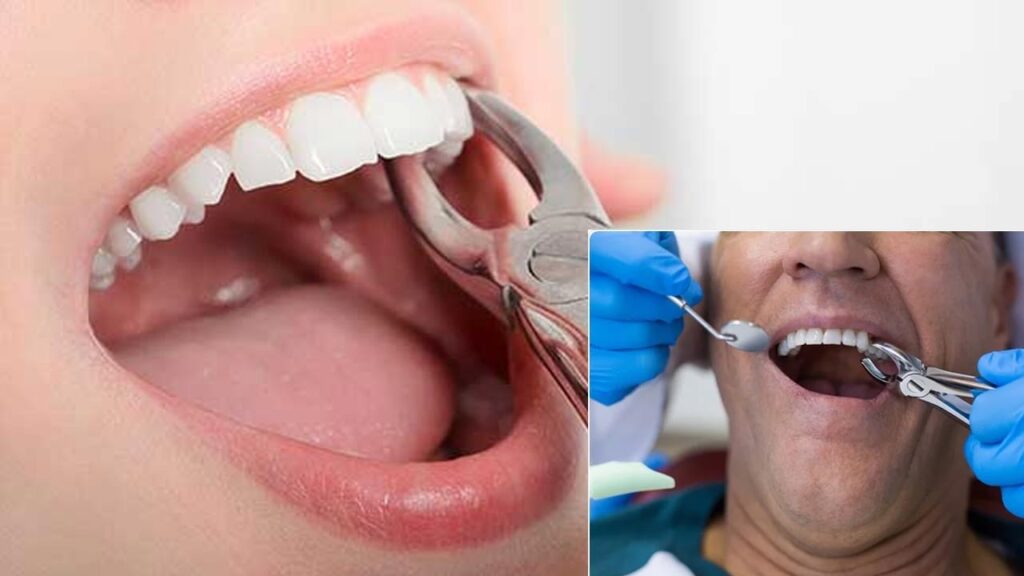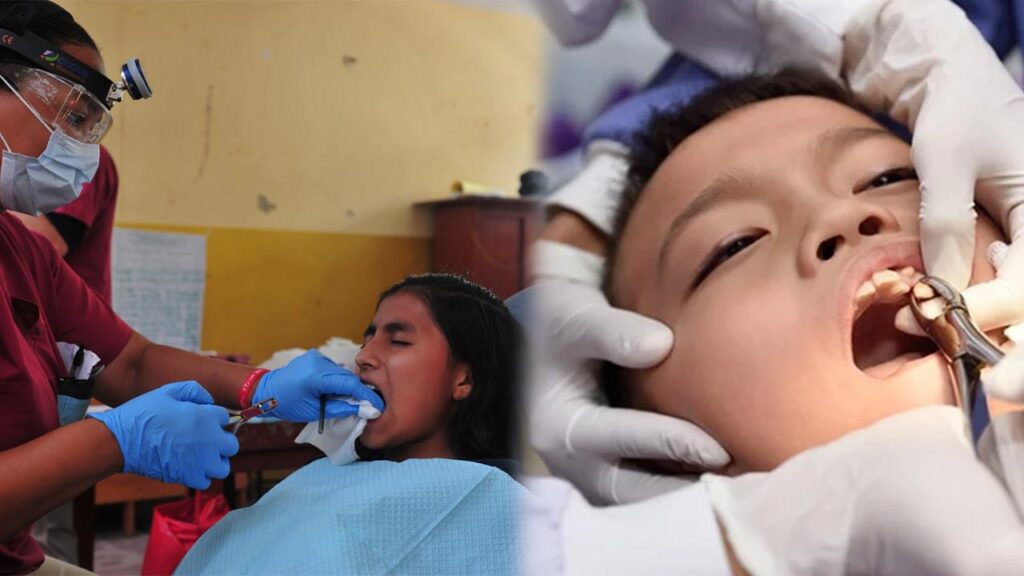Dental extractions are a common procedure in dentistry and can be performed for a variety of reasons, including decay, overcrowding, or infection. The type of extraction that is performed depends on the tooth’s location and condition, and it is important for individuals to understand the different types of extractions and the recovery time associated with each.
In this blog, we will provide information on the different types of dental extractions and answer common questions related to the procedure.
Overview of Dental Extractions

Dental extractions refer to the removal of one or more teeth due to various reasons such as decay, overcrowding, or infection. The procedure is performed by a dentist and is designed to improve oral health and prevent further dental problems.
Importance of Understanding the Different Types of Extractions
Understanding the different types of dental extractions is important in making informed decisions about one’s oral health and preparing for the procedure. It can also help individuals understand the recovery time associated with each type of extraction and what to expect during the healing process.
Purpose of the Blog
The purpose of this blog is to provide information on the different types of dental extractions and answer common questions related to the procedure.
Types of Dental Extractions
A. Simple Extraction
A simple extraction is the removal of a tooth that can be easily seen in the mouth and can be removed with forceps. This type of extraction is performed under local anesthesia and does not require incisions in the gum tissue or removal of bone.
B. Surgical Extraction
A surgical extraction is a more complex procedure that requires incisions in the gum tissue and/or removal of bone to remove the tooth. This type of extraction is performed under local or general anesthesia and is often necessary for impacted teeth, such as wisdom teeth, that cannot be easily removed with forceps.
C. Wisdom Tooth Extraction
Wisdom tooth extractions refer to the removal of the third molars, which are often impacted and can cause pain, infection, and other dental problems. This type of extraction is typically performed under local or general anesthesia and may require surgical techniques to remove the impacted tooth.
healthcareDental health is an important aspect of overall health and well-being. Take control of your dental health with our top-quality dental health care products. Say goodbye to painful and inconvenient dental issues and hello to a brighter, healthier smile.
These products are designed with the latest technology and are made from premium materials, ensuring that you get the best results. Whether you’re looking for a solution for sensitive teeth, gum health, or just want to keep your smile sparkling, our dental health care products have got you covered.
Tired of hiding your smile due to yellowing, stained, or sensitive teeth?
ProDentim is here to help. This advanced formula whitens and strengthens your teeth, while also reducing sensitivity and promoting oral health. Say goodbye to expensive and painful dental treatments, and start enjoying a bright, confident smile with ProDentim.
Click Here to Try ProDentim now and see the results for yourself!
Struggling with tooth sensitivity, gum problems or bad breath?
Dentitox Pro is the solution you need. This natural, effective formula helps to clean and strengthen your teeth and gums, giving you a brighter, healthier smile. Dentitox Pro is made with the finest ingredients and is free from harmful chemicals, making it safe and gentle for everyday use. Say goodbye to pain and embarrassment, and start enjoying a confident, beautiful smile with Dentitox Pro.
Click Here to Order now and get 20% off your first purchase!
Click Here for Professional Teeth Whitening
FAQ on Dental Extractions
A. What is the Recovery Time After a Dental Extraction?
The recovery time after a dental extraction varies depending on the type of extraction and the individual’s health, but it typically takes a few days to a week to fully recover. It is important to follow the dentist’s instructions for post-operative care, including eating soft foods and avoiding activities that can disrupt the healing process.
B. Is a Dental Extraction Painful?
Dental extractions can cause discomfort, but local anesthetics and pain medications can help manage pain. The dentist will provide instructions for managing pain and discomfort during the healing process.
C. Can a Dental Extraction Be Avoided?
In some cases, a dental extraction can be avoided with proper oral hygiene, regular dental visits, and timely treatment of dental problems. It is important to seek professional help from a dentist for any dental problems and to ensure the best possible outcome.
In conclusion, understanding the different types of dental extractions is important in making informed decisions about one’s oral health and preparing for the procedure. Whether a simple extraction or a surgical extraction is required, it is important to seek professional help from a dentist for the best possible outcome.
Regular dental visits and proper oral hygiene can help prevent the need for dental extractions and maintain good oral health. It is crucial to seek professional help from a dentist in a timely manner to avoid serious dental problems and maintain good oral health.
Dental extractions may seem intimidating, but with proper care and attention, individuals can recover quickly and maintain good oral health. It is important to understand the different types of extractions, the recovery time associated with each, and to seek professional help from a dentist for the best possible outcome.
